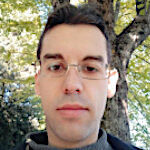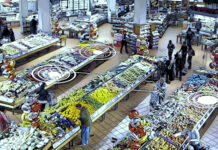The University of Genoa (Italy) is organizing an online advanced training course on the circular economy in the fish supply chain, as part of the Horizon 2020 research project #EcoeFISHent. Valorization of fishing and fish industries side-streams background knowledge. (1)
1) Circular economy in the fish supply chain, a huge untapped potential
The fish supply chain-in both stages of fishing, or aquaculture, and industrial processing (i.e., fish canning)-generates significant amounts of side streams(i.e., side streams) that are still managed as waste, when not subject to recycling for feed and pet food production.
Skin, bones, heads, and entrails, on the other hand, are rich in bioactive elements and substances such as oils, collagen, gelatin, or biopeptides that lend themselves to virtuous recovery(upcycling) for the production of functional foods and dietary supplements (2,3,4), as well as drugs and cosmetics.
The EcoeFISHent research project is dedicated to optimizing side streams reuse processes while minimizing the impact of the fish supply chain on the environment through the use of green technologies to manage processing sludge. (5)
2) EcoeFISHent, the online advanced training course.
The high-level training course organized online by the University of Genoa has the specific purpose of sharing the state of the art on the circular economy in the fish supply chain, through sharing knowledge and experience gained by the consortium partners of the EcoeFISHent research project.
Our WIISE – FARE team is participating in this research project to examine applicable EU rules (in place and in the making) and produce policy briefs aimed at harmonizing the law environment with concrete sustainable development needs in agri-food and contiguous systems.
3) Course structure
The Department of Earth, Environmental and Life Sciences at the University of Genoa organized the course into 160 hours of lectures. 58 hours of face-to-face lectures and 102 hours of self-study by accessing the teaching materials placed on the platform. Teaching is divided into four modules:
1) Blue Circular Economy (22 face-to-face hours, 42 individual hours)
2) Food and Sustainability (20 face-to-face hours, 38 individual hours)
3) Regulations and Logistics (12 face-to-face hours, 22 individual hours)
An additional 4 face-to-face hours are provided for a study phase and evaluation of the skills acquired by the participants.
4) Subscriptions.
Registration is already open and expires on September 19, 2023 (12 noon CEST). Classes, in English, begin on October 17, 2023 and end on May 21, 2024. The course is free of charge, precisely because it is funded by the Horizon 2020 research framework program. Students are only required to pay €16 upon registration.
5 ECTS (European Credit Transfer System) credits-useful to facilitate international recognition of the course (6)-are awarded upon completion of the course, along with a certificate of attendance signed by its director Prof. Elena Grasselli.
5) Why participate
Agrifood systems often deserve to be redesigned to optimize circular economy performance. Not only to improve socio-environmental ‘sustainability’ but even earlier for economic needs. Reduce production and environmental costs, value waste, create jobs, increase sales. (7)
Upcycling is the way forward, as it turns out. (8) It is precisely to this theme that another research project, Wasteless, in Horizon Europe is dedicated. (9) And the circular economy through upcycling of waste from the fish supply chain is so crucial that it was explicitly referred to in the FAO 2023 report on food security. (10)
Dario Dongo and Andrea Adelmo Della Penna
Cover image from Al Khawli, Fadila & Ferrer, & Berrada, Houda & Barba, Francisco & Pateiro, Mirian & Domínguez, Rubén & Lorenzo, Jose M. & Gullón, & Kousoulak. (2019). Innovative Green Technologies of Intensification for Valorization of Seafood and Their By-Products. Marine Drugs. doi: 10.3390/md17120689
Notes
(1) EcoeFISHent valorization of fishing and fish industries side-streams background knowledge. https://ecoefishent.eu/advanced-training-course/
(2) Dario Dongo, Andrea Adelmo Della Penna. Upcycling. Omega-3s from the waste of the fish supply chain. GIFT(Great Italian Food Trade). 29.10.21
(3) Dario Dongo. Fishmeal, a huge untapped potential. GIFT(Great Italian Food Trade). 9.12.22
(4) Dario Dongo, Alessandra Mei. Aquaculture, reduction and upcycling of fish waste into protein, Omega-3 and micronutrients. GIFT(Great Italian Food Trade). 20.6.23
(5) Dario Dongo, Andrea Adelmo Della Penna. EcoeFISHent, upcycling and blue economy in the fish supply chain. The EU research project. GIFT(Great Italian Food Trade). 18.10.21
(6) European Commission. European Credit Transfer and Accumulation System (ECTS) https://education.ec.europa.eu/it/education-levels/higher-education/inclusive-and-connected-higher-education/european-credit-transfer-and-accumulation-system
(7) Dario Dongo, Giulia Pietrollini. Circular economy in agri-food systems, an economic imperative. GIFT(Great Italian Food Trade). 4.5.23
(8) Dario Dongo. Upcycling, the highroad of research and innovation. GIFT(Great Italian Food Trade). 1.1.23
(9) Dario Dongo, Andrea Adelmo Della Penna. Wasteless, EU research project on circular economy and blockchain. GIFT(Great Italian Food Trade). 5.9.22
(10) Dario Dongo. State of Food Security and Nutrition in the World 2023. FAO report et al. GIFT(Great Italian Food Trade). 23.8.23









